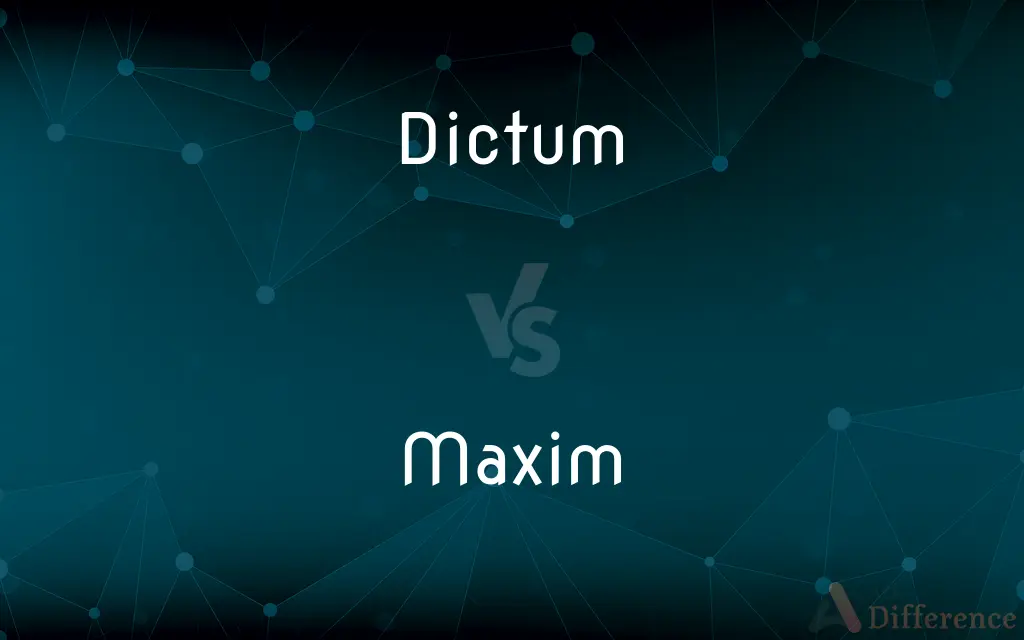Dictum vs. Maxim — What's the Difference?

Difference Between Dictum and Maxim
ADVERTISEMENT
Compare with Definitions
Dictum
In general usage, a dictum (lit. 'something that has been said' in Latin; plural dicta) is an authoritative or dogmatic statement. In some contexts, such as legal writing and church cantata librettos, dictum can have a specific meaning.
Maxim
A short, pithy statement expressing a general truth or rule of conduct
The maxim that actions speak louder than words
Dictum
An authoritative, often formal pronouncement
"He cites Augustine's dictum that 'If you understand it, it is not God'" (Joseph Sobran).
Maxim
A succinct formulation of a fundamental principle, general truth, or rule of conduct.
Dictum
(Law) A side remark made in a judicial opinion that is not necessary for the decision in the case and therefore is not to be regarded as establishing the law of the case or setting legal precedent. Also called obiter dictum.
ADVERTISEMENT
Maxim
A self-evident axiom or premise; a pithy expression of a general principle or rule.
Dictum
An authoritative statement; a dogmatic saying; a maxim, an apothegm.
Maxim
A precept; a succinct statement or observation of a rule of conduct or moral teaching.
Dictum
A judicial opinion expressed by judges on points that do not necessarily arise in the case, and are not involved in it.
Maxim
Alternative case form of Maxim
Dictum
The report of a judgment made by one of the judges who has given it.
Maxim
An established principle or proposition; a condensed proposition of important practical truth; an axiom of practical wisdom; an adage; a proverb; an aphorism.
'T is their maxim, Love is love's reward.
Dictum
An arbitrament or award.
Maxim
The longest note formerly used, equal to two longs, or four breves; a large.
Dictum
An authoritative statement; a dogmatic saying; an apothegm.
A class of critical dicta everywhere current.
Maxim
A saying that widely accepted on its own merits
Dictum
A judicial opinion expressed by judges on points that do not necessarily arise in the case, and are not involved in it.
Maxim
English inventor (born in the United States) who invented the Maxim gun that was used in World War I (1840-1916)
Dictum
An authoritative declaration
Dictum
An opinion voiced by a judge on a point of law not directly bearing on the case in question and therefore not binding
Share Your Discovery

Previous Comparison
Spamming vs. Flaming
Next Comparison
Lawyer vs. Litigator














































